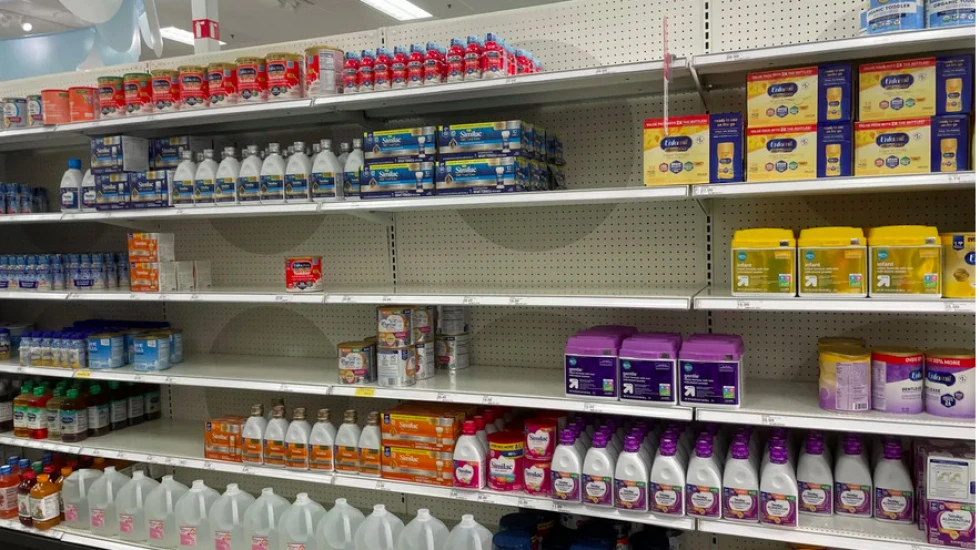
Less than two months after a baby formula recall by Abbott Nutrition, retailers are reporting shortages of infant formula nationwide, with some stores rationing sales.
Nearly 30% of popular baby formula brands could be sold out at retailers across the United States, according to Datasembly, a Tysons, Virigina, research firm that assessed supplies at more than 11,000 stores.
That’s a higher level than other products, said Ben Reich, Datasembly’s chief executive officer
“Inflation, supply-chain shortages and product recalls have brought an unprecedented amount of volatility to the category, and we expect to continue to see baby formula as one of the most affected categories in the market,” Reich said.
The shortage comes after Abbott Nutrition voluntarily recalled in mid-February select batches of Similac, Alimentum and EleCare formulas manufactured in Sturgis, Michigan. The recall was expanded in late February to include one lot of Similac PM 60/40.
The federal Food and Drug Administration said two weeks ago that the formula-maker failed to maintain sanitary conditions and procedures at the Michigan plant.
But formula supplies already were limited even before the recall.
Krishnakumar Davey, president of strategic analytics for IRI, told The Wall Street Journal that formula shortages are intermittent and that they vary based on retailer and location. Davey said some of the nation’s 10 largest retailers had more than 20% of baby formula out of stock the week ended Jan. 2.
“Product supply challenges are currently impacting most of the retail industry,” according to CVS Health, which owns the CVS pharmacy chain. “We’re continuing to work with our national brand baby formula vendors to address this issue, and we regret any inconvenience that our customers may be experiencing.”
Walgreens is limiting shoppers to three infant and toddler formula products per transaction “to help improve inventory,” the company said. “Due to increased demand and various supplier issues, infant and toddler formulas are seeing constraint across the country.”
After hunting for Similar at three stores in one day, Elyssa Schmier, vice president of government relations for advocacy group MomsRising, ”all of a sudden realized my formula was nowhere to be found. … It’s almost a full-time job trying to find Similac.”
Manufacturers “are tuned into this, and it is our understanding that, across the board, folks are ramping up production,” said Brian Dittmeier, senior director of public policy for the National WIC Association, an arm of the Special Supplemental Nutrition Program for Women, Infants and Children. “Now, it’s not like flipping a switch. We will probably continue to see shortages in the next couple of weeks. But our hope is that, as production ramps up, that later this spring it should be easier for families across the country.”
Datasembly’s analysis found that, during the first seven months of 2021, baby formula supplies were “relatively stable,” with out-of-stock supplies running at between 2% and 8%. But the situation grew worse over the months that followed, Reich said, as out-of-stock rates rose into double digits, hitting 23% at the end of January.
Among the states hit hardents with baby formula supply shortages, according to Datasembly: Minnesota, with the out-of-stock percentage the week of March 13 at 54%, followed by Connecticut, Hawaii, Iowa, Louisiana, Maryland, North Dakota, Rhode Island, South Dakota and Texas, all at 40% or higher.
Cities with the highest out-of-stock rates: San Antonio (56%), Minneapolis (55%) and Des Moines (50%), with Houston, New Orleans and Oahu also above 45%.
Read more at USA Today.







